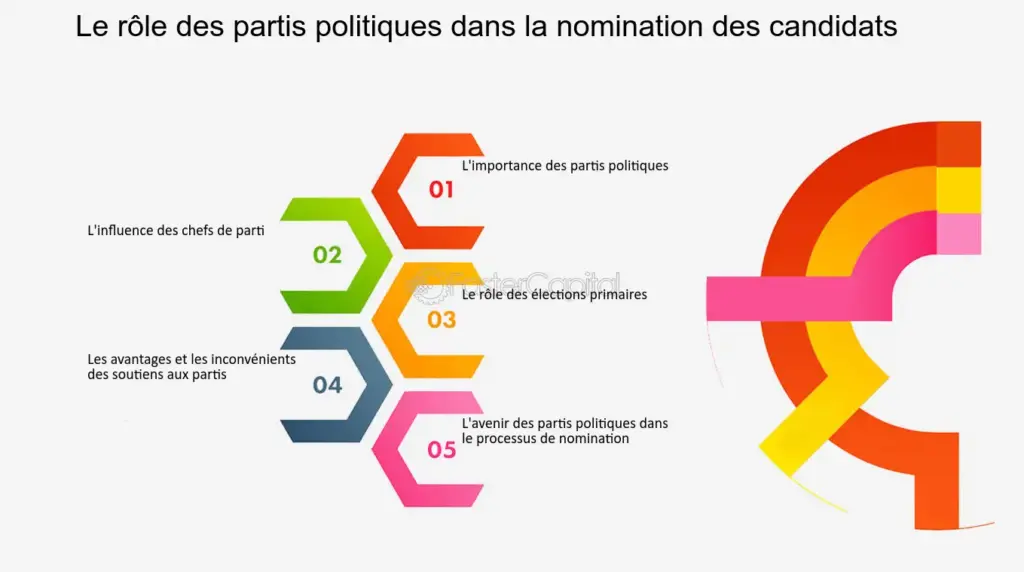In this articleIn this section, we take a look at the advantages and disadvantages of primaries in political parties. Primaries, which are internal elections allowing party members to choose their candidate for the general election, offer greater democratic participation and give voters a direct voice in the selection process. However, they can also divide parties and cause internal conflict. Ultimately, we'll weigh up the benefits and drawbacks to determine whether primaries are an effective political choice.
What is democracy? - 1 day, 1 question
[arve url="https://www.youtube.com/embed/fw8lA9Z1Yow "/]
What's a political primary?
A political primary is an internal selection process used by a political party to choose its candidate for an election. It allows members and supporters of a party to participate directly in designating the candidate who will represent them in the election.. Primaries can be held at national, regional or local level, depending on the level of election in which the party is participating.
The main purpose of a primary is to promote internal democracy within the party.by giving militants the opportunity to express their views and choose between different candidates. This also avoids arbitrary appointments and guarantees a certain legitimacy for the chosen candidate.
The primary process can vary from one political party or country to another. It can be an election open to all voters, whether party members or not, or reserved for party members only. Generally speaking, candidates wishing to take part in the primary must comply with certain rules and criteria set by the party.such as collecting sponsorship or presenting a political program.
The results of a primary can have a significant impact on the political dynamics of an election, because the selected candidate often benefits from increased support from party members and can thus strengthen his or her legitimacy with voters. However, it is important to note that the primary does not automatically guarantee electoral victory, as the choice of the final candidate is still up to the voters at the ballot box.
In a nutshell, the political primary is an internal democratic process in a political party that allows members and supporters to choose their candidate for an election.. This is an important stage in the formation of candidacies and in the political dynamics of an election campaign.
What are the different types of political parties?
The different types of political parties are essential to understanding a nation's political landscape. Here are some of the main party types:
1. Left-wing parties : These parties, sometimes called "progressive parties", focus on social and economic issues linked to equality, social justice and state intervention. They often emphasize workers' rights, public services and environmental protection.
2. Right-wing parties : These parties generally support a free economy and conservative policies on social issues. They often favor individual freedoms, personal responsibility and reduced government intervention.
3. Centrist parties : These parties generally seek to occupy a middle ground between left and right. They may adopt more moderate policies and seek a balance between economic and social interests.
4. Nationalist parties : these parties place great importance on national sovereignty and the preservation of national culture, identity and interests. They can be influenced by populism and adopt protectionist policies.
5. Green parties : these parties focus on environmental issues and seek to promote sustainable, environmentally-friendly policies. They may also be concerned with social justice and equity.
6. Regionalist parties : These parties represent the specific interests of a given region or cultural community. They seek greater autonomy or specific rights for their region.
These are just a few examples, and there are many regional and national variations. However, they do provide an overview of the main ideological currents shaping the political landscape.
Which is France's leading political party?
The leading political party in France is the Rassemblement National (formerly known as the Front National). Founded in 1972 by Jean-Marie Le Pen, this party is often considered to be on the extreme right of the French political spectrum. It advocates nationalist and sovereignist policies, focusing on issues such as immigration, security and national identity. The Rassemblement National has achieved significant electoral results in recent years, notably in regional and European elections. However, it should be noted that other political parties such as La République En Marche (LREM) and Les Républicains (LR) also play an important role in the French political landscape.
In conclusion, primaries in political parties have both advantages and disadvantages. On the one hand, they offer greater democratic participation by allowing party members and voters to choose candidates. This enhances the transparency and legitimacy of the candidate selection process. In addition, primaries encourage more in-depth political debate and give candidates who are less well known or less supported by the party elite a chance to be heard.
However, it should be noted that primaries can also lead to certain problems. For example, they can contribute to political polarization by pushing candidates to adopt more extreme positions to win the support of their party's voters. In addition, primaries can be costly and time-consuming, requiring complex organization and considerable resources.
Ultimately, the advantages and disadvantages of primaries in political parties depend largely on the specific context in which they are implemented. It is important to take into account the political realities of each country, and to strike a balance between democratic participation and political stability. Primaries can represent a step towards greater representativeness and political openness, but they also require careful thought as to how they should be set up and run.








